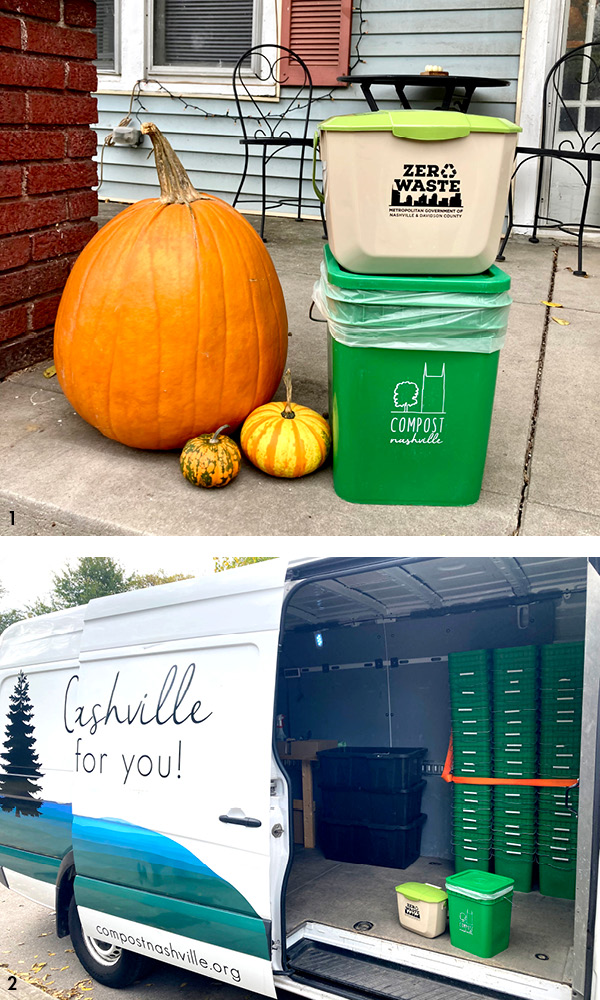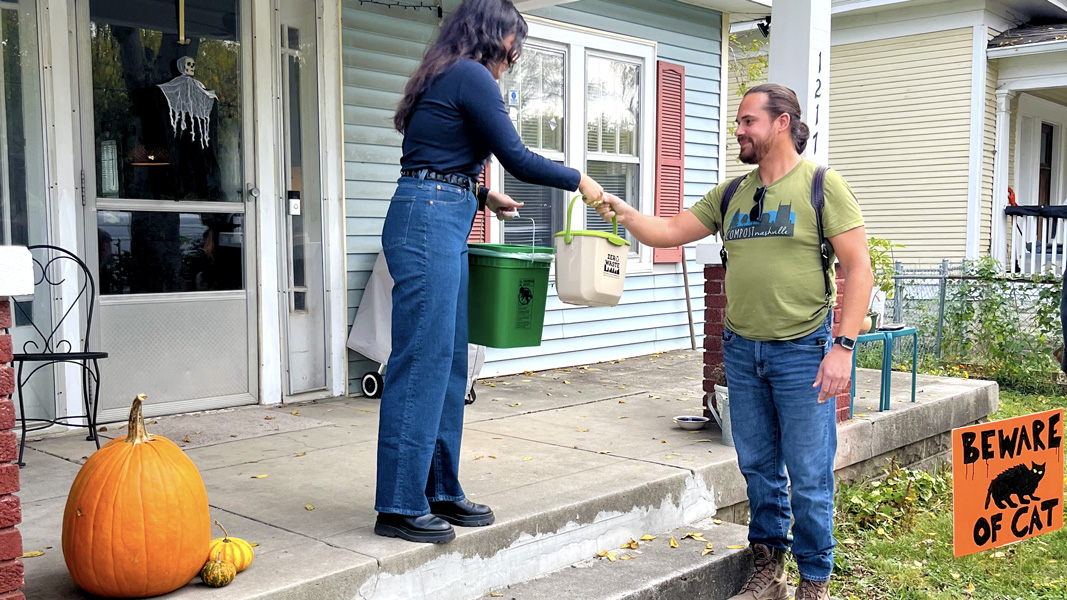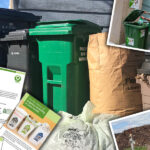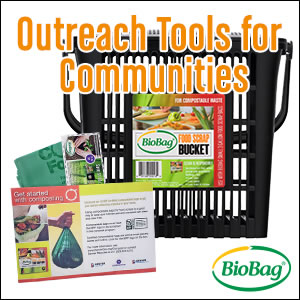Top: Compost Nashville provides weekly collection of all food scraps, food-soiled paper and BPI-certified compostable products. Photos courtesy of Zero Waste Nashville
The Division of Waste Services within Metro Water Services, part of the metropolitan government in Nashville, Tennessee, initiated a pilot residential food scraps collection program for 750 single-family homes in October 2023. Collection is provided weekly; all food scraps, plus soiled paper and BPI-certified compostable products, can be set out in a 5-gallon bucket provided by Compost Nashville, the contracted hauler for the pilot. Participating households also received a 1.8-gallon countertop food scraps collection container. “About half of residents have collection service for the bin on the same day they set out their trash,” notes Jenn Harrman, Zero Waste Program Manager with the Division of Waste Services’ Zero Waste Nashville office. “The pilot runs for one year. We received 2,600 applications, and we didn’t do much publicity, other than getting the word out about the pilot through our e-newsletter, at farmers markets and a few local events.”

Pilot participants received a 5-gallon curbside bucket and a 1.8-gallon kitchen countertop container (1). Collected organics are hauled by Compost Nashville (2) to The Compost Company’s facility in Ashland City.
In 2019, the Davidson County Solid Waste Region Board adopted a Zero Waste Master Plan to increase waste diversion. Part of the motivation is the reality that the municipal solid waste landfill serving the metro area has limited capacity remaining. “In 2021, the Metro government also adopted the Zero Waste plan,” says Harrman. “Metro had conducted audits of the solid waste stream and identified food waste and construction and demolition debris as the top two categories of waste that needed to be targeted for diversion. We’ve offered food scraps drop-off at four Convenience Centers in our service area. Residents can bring trash, recyclables, and bulky items to the convenience centers, which are staffed. The challenge is that the locations of these centers aren’t really convenient for a lot of the Metro residents. The pilot program has already collected twice as much food scraps — about 11.5 tons by early January — as what is received at the drop-off centers each month.”
The cost of the pilot — around $250,000 (not including Metro staff time) — is being funded by a private donation. The organics collected by Compost Nashville are taken to The Compost Company’s facility in Ashland City, about 20 miles outside of Nashville, which primarily processes commercial and institutional food waste streams. The Compost Company was already a contractor with the Division of Waste Services to collect and compost the food scraps from Metro’s office buildings and the drop-off sites. “When we negotiated that contract, we included the possibility of processing material collected from a residential pilot,” explains Harrman. “Compost Nashville is set up to provide residential food scraps collection, so it services the routes and The Compost Company manages the materials.”
Household participation to date “has been great,” and contamination has not been a significant issue. “The most common question we get is if a material can go into the curbside bin,” she adds. The pilot program includes quarterly household surveys and several focus groups. The first survey will be conducted in February. When the pilot program was being planned, Zero Waste Nashville wanted to be inclusive of the diversity of residents throughout its service area. “Based on 2020 U.S. Census data, we mostly have the demographic distribution we were targeting,” says Harrman. “However, because only single-family residences are in the pilot, that eliminated a portion of Nashville’s diverse population that lives in multifamily housing units.” The goal in the Zero Waste Master Plan is to divert 75% of food waste generated via reduction, recovery, and recycling initiatives. The pilot is a “fact-finding mission” for Zero Waste Nashville to determine how to achieve the Plan’s goal for reducing food waste to landfill.













